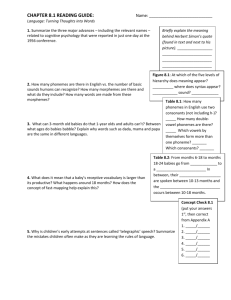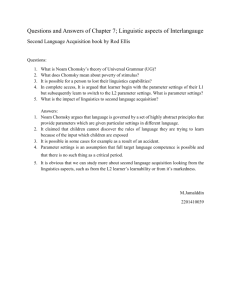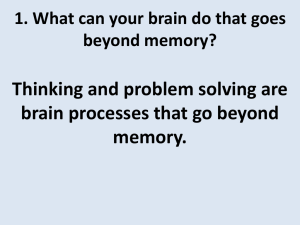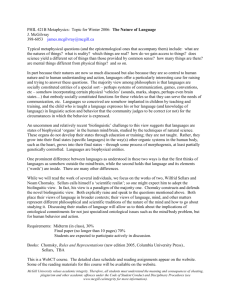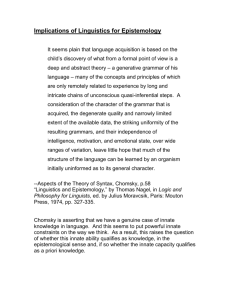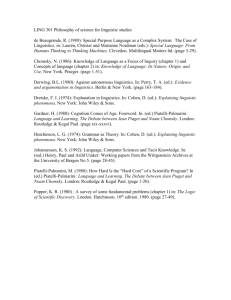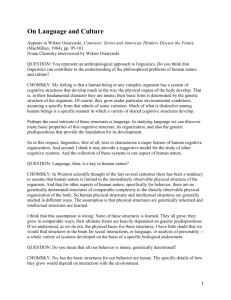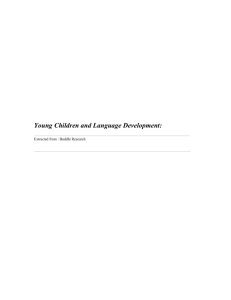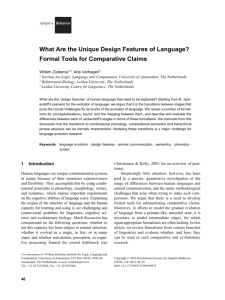Study Questions on Chomsky: Language as a Natural Object
advertisement
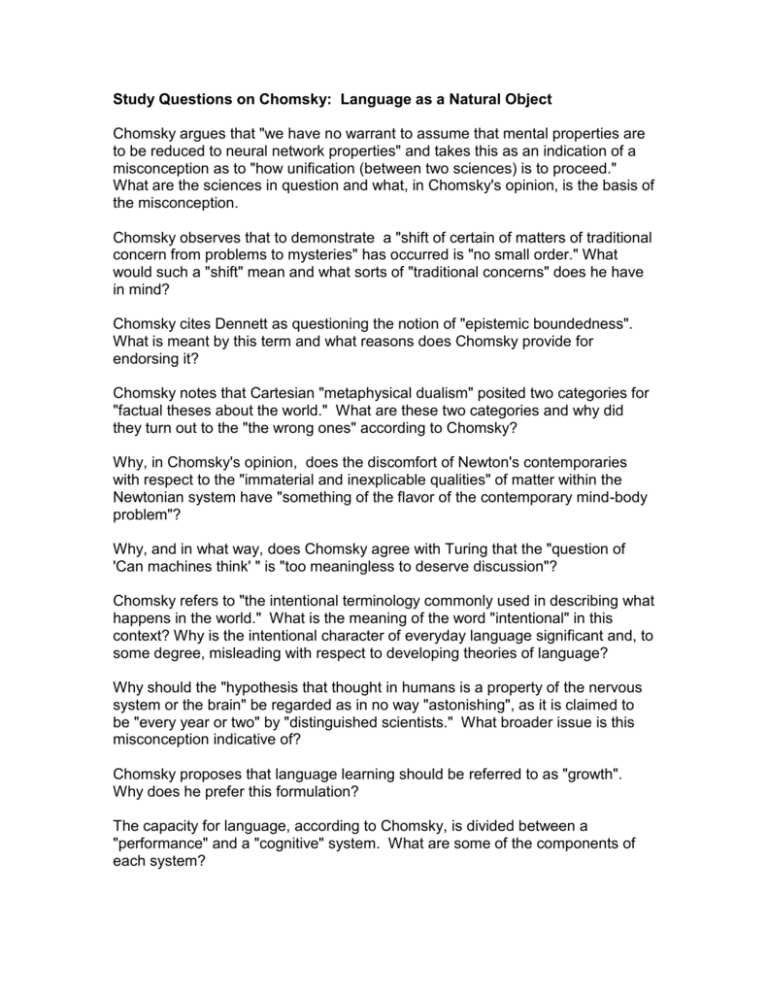
Study Questions on Chomsky: Language as a Natural Object Chomsky argues that "we have no warrant to assume that mental properties are to be reduced to neural network properties" and takes this as an indication of a misconception as to "how unification (between two sciences) is to proceed." What are the sciences in question and what, in Chomsky's opinion, is the basis of the misconception. Chomsky observes that to demonstrate a "shift of certain of matters of traditional concern from problems to mysteries" has occurred is "no small order." What would such a "shift" mean and what sorts of "traditional concerns" does he have in mind? Chomsky cites Dennett as questioning the notion of "epistemic boundedness". What is meant by this term and what reasons does Chomsky provide for endorsing it? Chomsky notes that Cartesian "metaphysical dualism" posited two categories for "factual theses about the world." What are these two categories and why did they turn out to the "the wrong ones" according to Chomsky? Why, in Chomsky's opinion, does the discomfort of Newton's contemporaries with respect to the "immaterial and inexplicable qualities" of matter within the Newtonian system have "something of the flavor of the contemporary mind-body problem"? Why, and in what way, does Chomsky agree with Turing that the "question of 'Can machines think' " is "too meaningless to deserve discussion"? Chomsky refers to "the intentional terminology commonly used in describing what happens in the world." What is the meaning of the word "intentional" in this context? Why is the intentional character of everyday language significant and, to some degree, misleading with respect to developing theories of language? Why should the "hypothesis that thought in humans is a property of the nervous system or the brain" be regarded as in no way "astonishing", as it is claimed to be "every year or two" by "distinguished scientists." What broader issue is this misconception indicative of? Chomsky proposes that language learning should be referred to as "growth". Why does he prefer this formulation? The capacity for language, according to Chomsky, is divided between a "performance" and a "cognitive" system. What are some of the components of each system? What is meant by the term "folk science." Why does it, in Chomsky's opinion, "have no relevance to the pursuit of naturalistic inquiry into the topics which folk science addresses."? Chomsky refers to the computational component of the language faculty as "austere." What does he mean by the term and what is the evidence for it being so? Chomsky cites neurologist Rodolfo Llinas description of perception as "a dream modulated by sensory input." How is this description consistent with the view of language Chomsky is promoting? Jackendoff study questions. Jackendoff distinguishes between a psychological and philosophical perspective on the theory of mind. What is the essential difference between these two perspectives? Jackendoff asserts that mental representations posited within cognitive science are taken to be "homologous to the organization of the relevant subsystems of brain states". What does he mean by "homologous" in this context? Are these mental representations "natural objects" in the Chomskyan sense and if so, how so? Why does Jackendoff by a representation as a "nonintentional notion"? What evidence is there that such nonintentional representations exist? Why are these seen as crucial for the success of the sort of cognitivist program Jackendoff is advancing? Jakcendoff asserts that "probably most distinctions in the world . . . are left out of mental representations." What does Jackendoff mean by "distinctions in the world" here and what sort of evidence does he have in mind for the assertion? Jackendoff distinguishes between three categories of psychological relationships to the real word: underrepresentation, illusion and construction. What distinguishes these three types of cases? Why does each pose a problem for the philosophical perspective of the theory of mind? Jackendoff posits that "the constancy of a reality of a piece of music are purely mental." What alternative designations of the essential "reality" of music is this formulation in opposition to? What facts about our understanding of what music is does if provide a natural, or at least possible, explanation for?
